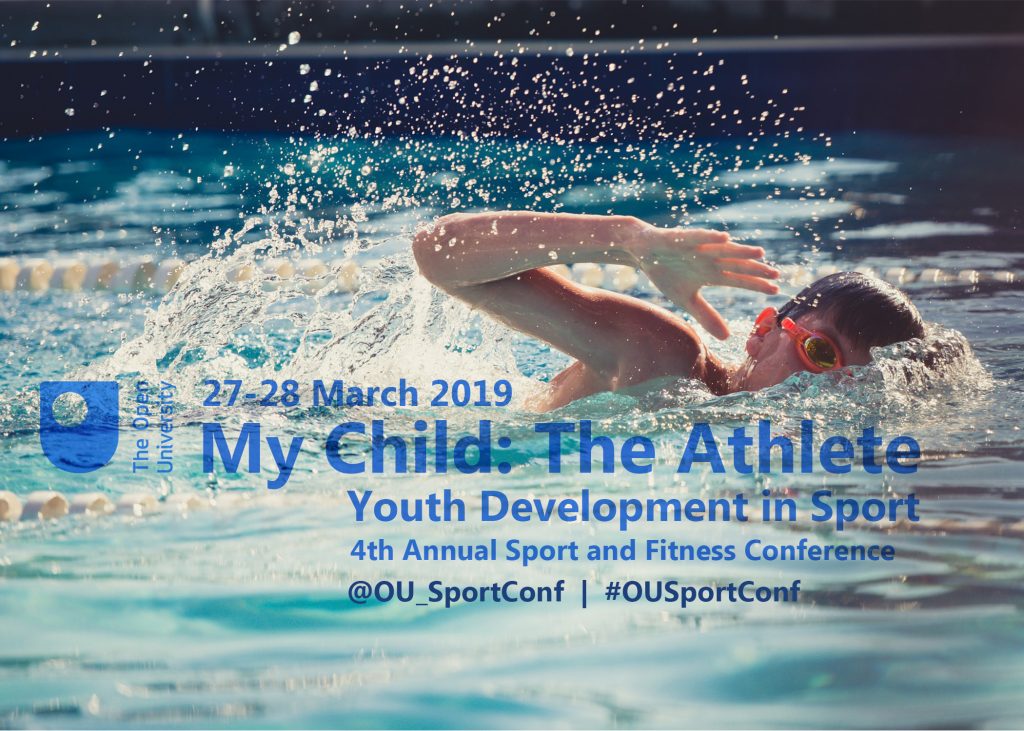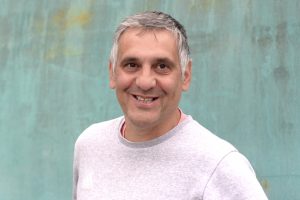By Jessica Pinchbeck
With the World Cup now upon us my household is at fever pitch and my six year old son is mesmerised by the strength, skill and speed of the players. He is a keen rugby player himself and has been attending training at the local club since he was four. However despite his passion for the sport he is yet to define himself as ‘a rugby player’ as he also participates in a range of other sports including football, swimming and golf. This is similar to most of his rugby teammates who also take part in a range of sports from ballet to ice-hockey. However the majority of his football teammates tend to only play football, football and more football. So what is the best approach? Should my son choose to focus on rugby, the sport he excels at the most, and forget the rest? Would that make him a better rugby player and increase his chances of reaching elite level? What are the benefits and risks of such early specialisation?
![Kelsey E ] via Flickr Creative Commons https://www.flickr.com/photos/kelseye/786999279](https://www.open.ac.uk/blogs/OU-Sport/wp-content/uploads/2015/10/786999279_7590bb182e_o-in350-300x171.jpg)
Kelsey E via Flickr Creative Commons https://www.flickr.com/photos/kelseye/786999279
Early Specialisation
Early specialisation is a hot topic at the moment with youth sports becoming more and more susceptible to commercial pressures and parents and coaches often encouraging children to participate in intensive training and highly competitive events in their specialised sport at a young age. There are various definitions for early specialisation however typically it involves continual year-round training in a single sport between the ages of 6 and 12 years with a specific focus on development in that sport. One of the main arguments for endorsing early specialisation is the positive relationship between the amounts of time spent in deliberate practice i.e. highly effortful and structured activity, and the level of achievement attained. Therefore in theory, the earlier you start practicing the earlier it is that you are likely to ‘make it’ to the top level. However this is a very simple outlook and this linear approach has been questioned in relation to sports performance. Although deliberate practice is considered important the exact requirements of the type and amount of such practice remains in question.
Currently the general consensus is that sampling a range of sports throughout childhood provides the best grounding for both progressing onto a higher level in a chosen sport as well as for continued participation into adulthood. Sampling allows for the transfer of cognitive skills and physiological conditioning to different sports. There is also strong evidence that in sports where peak performance is reached into adulthood specialisation does not need to occur before the age of 13. So how does this apply to rugby?
Rugby is a sport where peak performance is typically achieved later into adulthood. This corresponds to statistics from the previous World Cup winners where the RFU calculated average team ages of 27 (Australia), 28 (England), 27 (South Africa) and 28 (New Zealand). In their 2015 squad New Zealand have opted for experience including four players who have played in four world cups and France have just one player under the age of 25 with an average age of 29.1. Rugby players are thought to benefit from late specialisation whereby players sample different sporting activities to develop physical, psychological and sociological skills that benefit their rugby performance.
‘Rugby is a late maturation sport, further complicated by the different maturation rates that tend to apply to the different positions. There is also a wide consensus based on statistical evidence that selection for elite training and specialisation would be more effective if delayed until after maturation, that period of maximum growth and change. In practice, almost all sports begin such selection rather earlier. So the RFU and the Regional Academies must continue to encourage both early engagement and late specialisation in the sport.’ (England Rugby, 2013)
However according to rugby journalist Stephen Jones this is not happening within English rugby with Rugby Schools dominating and the quest for talent forcing children to specialise and be identified earlier. Interestingly in the England 2015 World Cup Squad Stuart Lancaster has eighteen players aged under 27 including youngsters Luke Cowan-Dickie (20), Elliot Daly (22), Maro Itoje (20) and Henry Slade (22) who have progressed through the player development pathway, which would suggest that the system is working to some extent. It would be interesting to know if these players were early specialisers. However one could also argue that the current system encourages early talent identification and specialisation which can often fail to distinguish between potential and performance and so for those players such as Cowan-Dickie and Itoje that make it to the top level many potentially elite youngsters have been disregarded. There is also evidence to suggest that early specialisation poses risks to the young athletes.
What are the risks of early specialisation?
Evidence suggests that early specialisation can lead to negative consequences, both physically and mentally. Early sport specialisation may increase rates of overuse injury and sport burnout, showing higher training volumes to be a factor in injury with injuries more likely to occur during the adolescent growth spurt. Evidence also suggests that athletes who had early specialised training withdrew from their sport either due to injury or burnout from the sport. This is particularly important for contact sports such as rugby.
As well as the physical risk of injury the main psycho-social risks of early specialisation include decreased sport enjoyment, low intrinsic motivation, compromised social development, social isolation, dropout, psychological burnout, and even the potential to lead to eating disorders in some sports. In contrast early sampling is thought to lead to sport expertise because of the intrinsic motivation that stems from the fun, enjoyment, and competence children experience through their sporting involvement (Côté & Hay, 2002).
What is the answer?
With early specialisation becoming more prominent despite the evidence documenting the risks the IOC have issued a consensus statement with a range of recommendations for those involved in youth sport. For example acknowledging that each child will develop at different rates due to varying responses to training. Developing children holistically, to provide a foundation that will help them be successful in life as well as in sport and ensuring steps are taken to prevent injury. In addition the IOC challenge governing bodies to embrace the recommendations which are based on academic evidence to ensure youth sport is healthier, inclusive, sustainable and long-term. Johnny Wilkinson is a good example of this ideal:
‘I have always loved rugby but have also been fortunate to play a whole host of different sports from a young age. I hope that all children have similar enjoyable opportunities to play and keep active throughout their lives’.
Evidence suggests that in a sport such as rugby there is no place for early specialisation and in fact participating in a range of different sports would provide a better foundation for performance as well as continued participation. So to answer my earlier question I will continue to support my son in his rugby but also encourage him to continue sampling a range of activities to promote a positive sports experience that hopefully continues into adulthood.
 Twitter
Twitter







![Kelsey E ] via Flickr Creative Commons https://www.flickr.com/photos/kelseye/786999279](https://www.open.ac.uk/blogs/OU-Sport/wp-content/uploads/2015/10/786999279_7590bb182e_o-in350-300x171.jpg)